Can You Be a Real Foodie and Be a Vegetarian?
This ebook is part of a Special Fall Sale ($2000 worth of content for only $39) from now through Nov 8th. Click here to find out more.
As many of my loyal fans know, I am not a vegetarian nor have I ever been a vegetarian. I have even shared articles as to why you must eat meat to maintain optimal health. But that was before I met Hannah Healy of the Healy Real Food Vegetarian blog.
Can You Be A Real Foodie and Be a Vegetarian?
Many of you know that I follow what is called a WAPF (or Weston A Price Foundation) traditional diet. This includes eating lots of saturated fats from animal products including organ meats and bone broth. Clearly not vegetarian. However, I am a staunch supporter of anyone who wants to ditch processed foods in favor of eating real whole foods. I have grown tired of food ‘labels’. I frankly do not much care what type of ‘diet’ you subscribe to because I feel if we are all trying to avoid processed foods then we are all in the same boat! I also have realized that every human body is different and some people do very well eating a vegetarian diet. However, some do not. We all need nourishment, and that comes with cutting out processed foods, selecting our ingredients with care, paying particular attention to traditional preparation of ingredients, and eating foods that are ‘alive’ or fermented. This is no different for all my vegetarian friends and readers out there.
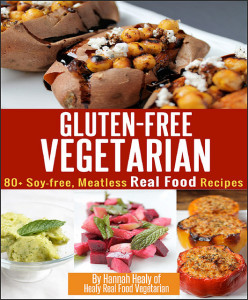 Enter Hannah Healy. She is a WAPF loving real food vegetarian! For realz! And she just released a brand new eBook, The Gluten-Free Vegetarian: 80+ Soy Free, Meatless Real Food Recipes. There is NOTHING quite like this eBook for sale right now anywhere.
Enter Hannah Healy. She is a WAPF loving real food vegetarian! For realz! And she just released a brand new eBook, The Gluten-Free Vegetarian: 80+ Soy Free, Meatless Real Food Recipes. There is NOTHING quite like this eBook for sale right now anywhere.
Right now, and this week only, you can get this book along with 46 others as part of the biggest Fall Sale ever! Find out more.
This vegetarian cookbook is both gluten-free and soy-free with a strong focus on quality ingredients sourced from grass-fed animals including high quality dairy and pastured eggs. But this cookbook is for anyone – not just vegetarians. The reason why is that you will learn things not normally of focus in other cookbooks geared toward omnivores including:
- How to be a real food vegetarian and enjoy a gluten and soy-free lifestyle
- How to save money by cutting out meat for dinner once or twice a week (a la Meatless Mondays)
- Understanding why going gluten and soy-free as a vegetarian may be good for you
- Learning about why processed foods are bad and how that impacts the soy you might be eating as a vegetarian
- Learning which cooking oils are healthy
- Understanding the benefits of fermentation
Check out some of these really helpful How-To’s:
How to easily make Queso Fresco without rennet:
Learn how to sprout quinoa for easier digestion:
Learn how to make almond flour:
Many vegetarians suffer from digestive … shall we say … distress. I think it is because of the fact that many items vegetarians eat frequently such as grains and legumes are not properly prepared with traditional methods. I have heard of many vegetarians who have destroyed their digestion and hormonal balance due to eating too much soy or gluten.
The recipes in The Gluten-Free Vegetarian will help you remain a vegetarian and do it in a way that properly nourishes your body! Even if you are not a vegetarian you will love these great how-to’s and recipes!
- Sprout and soak grains and legumes (beans, lentils and even quinoa!)
- Make ghee, vegetable broth from scraps, raw milk yogurt, whey and cream cheese, and poach eggs
- Make vegan cashew cream cheese
- Make almond flour and almond butter
- Make tortilla chips
- Make tons of fabulous recipes for breakfast, salads, soups, egg dishes, ‘burgers’, casseroles, lunch, and dinners
- Make ethnic recipes for Indian, Italian, Mexican cuisines
- + make delectable gluten and soy-free desserts!
Click here to order now and get this book this week only along with 46 others for only $39!
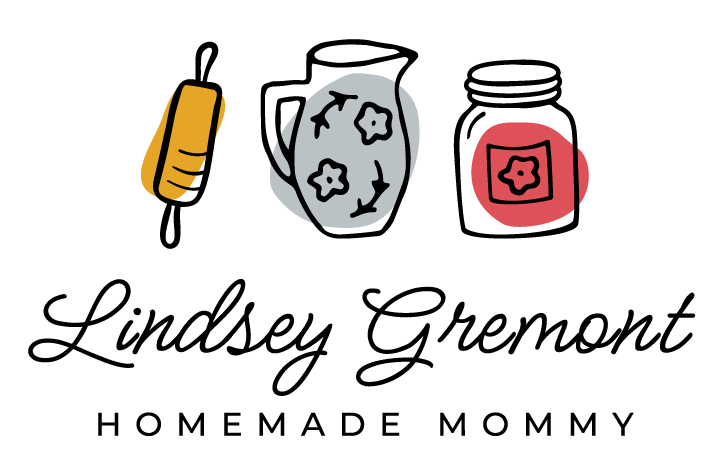
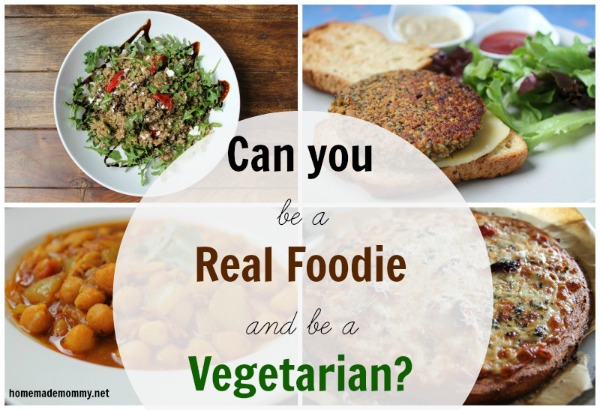
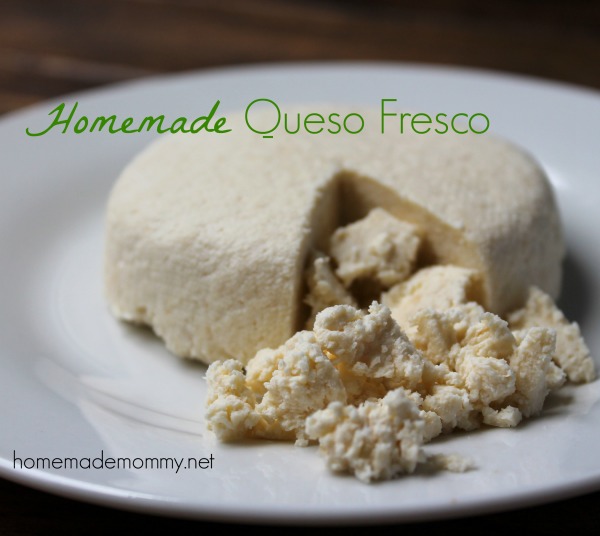
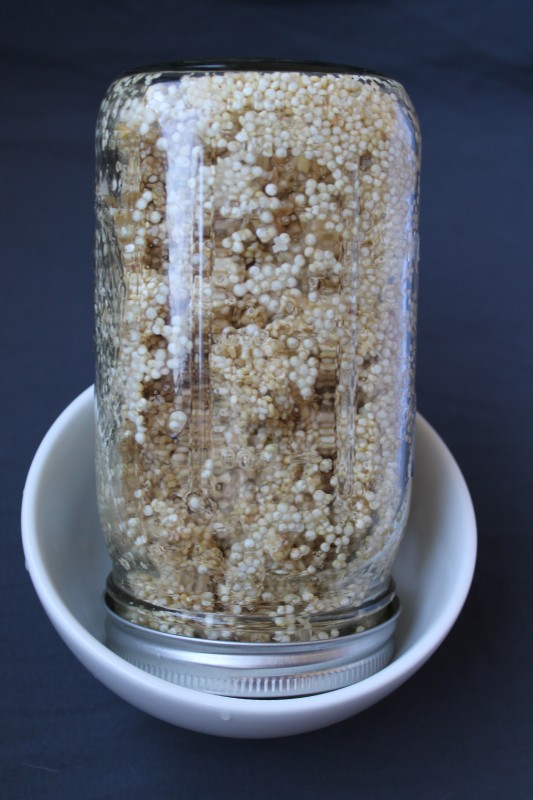
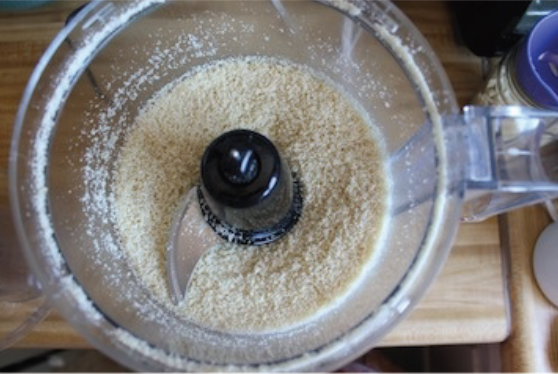
Hi Lindsey. Great article on being a real food vegetarian. One aspect in the vegetarian vs Paleo war I don’t hear mentioned very often is regarding the fact that we are learning about the role genetics can play a role in whether or not we should adopt an all veggie lifestyle. For example, there is a certain gene that gives the ability for the human body to convert vegetable based omega-3 essential fatty acids (Alpha Lipoic Acid, or ALA) into the animal forms, DHA and EPA. If someone lacks that gene, they can eat all of the expensive raw soaked walnuts and freshly ground flax seeds they want, and they will still suffer from a deficiency of omega-3. A study was done and found that roughly 30 to 40% of the those studied around the world, and all Native Americans studied DID NOT have this omega-3 conversion gene. Now we can tell why Native Americans that have survived the ages had animal sources in their diets. Native Americans who lacked meat sources of food probably suffered from effects of EFA imbalance. The Native Inuit diet is almost 100% animal based. We will probably soon discover more genetic traits for conversion of plant based nutrients in the the form that are usable by the human body. In the case of vitamin A for example, maybe we’ll be able to identify people who genetically possess the enzyme to convert beta-carotene in vegetables into retinol. These are important factors that should weigh upon the decision to exclude animal foods from ones diet. Since most of us do not have access to such cutting edge genetic testing, deciding to have at least some high quality animal foods in our diet will be the only food-based way of preventing unintended deficiencies and their related heath consequences. Here’s a link to an article about the EFA conversion genetic study:
http://www.vitalchoice.com/shop/pc/viewContent.asp?idpage=202
Great point!